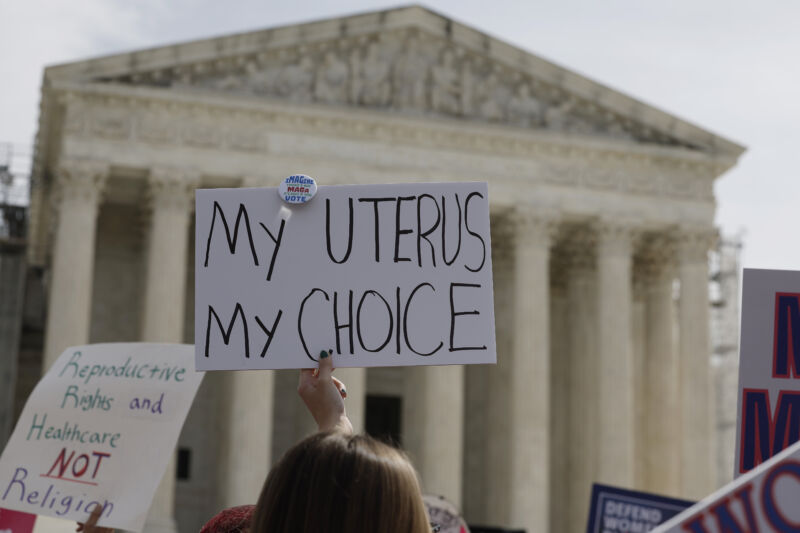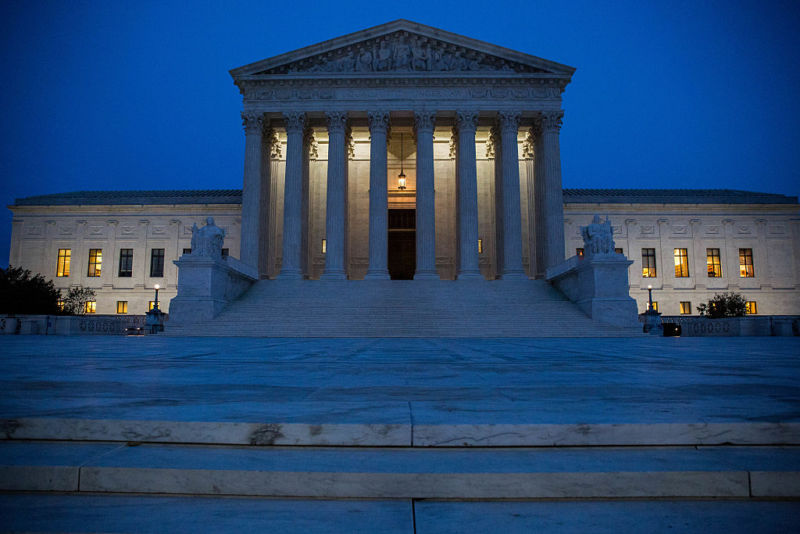-
 chevron_right
chevron_right
SCOTUS mifepristone case: Justices focus on anti-abortion groups’ legal standing
news.movim.eu / ArsTechnica · Tuesday, 26 March - 21:10 · 1 minute

Enlarge / Demonstrators participate in an abortion-rights rally outside the Supreme Court as the justices of the court hear oral arguments in the case of the US Food and Drug Administration v. Alliance for Hippocratic Medicine on March 26, 2024 in Washington, DC. (credit: Getty | Anna Moneymaker )
The US Supreme Court on Tuesday heard arguments in a case seeking to limit access to the abortion and miscarriage drug mifepristone, with a majority of justices expressing skepticism that the anti-abortion groups that brought the case have the legal standing to do so.
The case threatens to dramatically alter access to a drug that has been safely used for decades and, according to the Guttmacher Institute, was used in 63 percent of abortions documented in the health care system in 2023 . But, it also has sweeping implications for the Food and Drug Administration's authority over drugs, marking the first time that courts have second-guessed the agency's expert scientific analysis and moved to restrict access to an FDA-approved drug.
As such, the case has rattled health experts, reproductive health care advocates, the FDA, and the pharmaceutical industry alike. But, based on the line of questioning in today's oral arguments, they have reason to breathe a sigh of relief.


